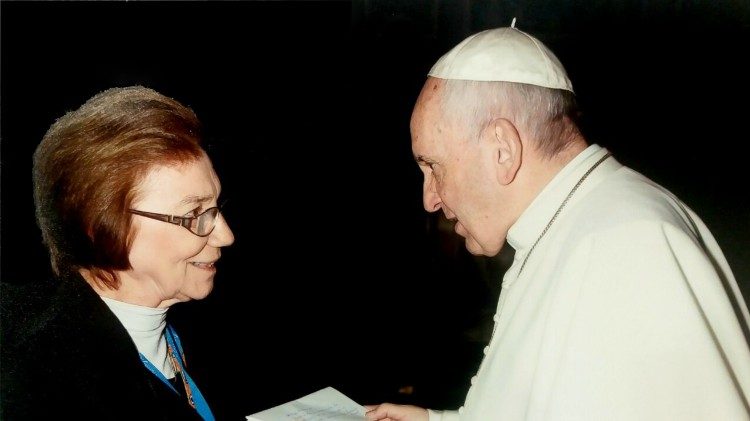By Matters India Reporter
New Delhi, Oct 9, 2024: A 79-year-old Brazilian nun, who has helped refugees and migrants for 40 years, on October 9 won the annual Nansen prize given to those doing outstanding work to protect internally displaced and stateless people.
Sister Rosita Milesi, a member of the Scalabrini nuns, is among five trailblazing women honored by the UN High Commission for Refugees. While the Catholic nun is this year’s global laureate, the other four are named regional winners.
Sister Rosita Milesi, is a Brazilian nun, lawyer, social worker and movement builder who has championed the rights and dignity of people on the move for nearly 40 years. The four others have been named regional winners, says a UNHCR press release.
The four regional winners to be honoured this year are Maimouna Ba (Africa), Jin Davod (Europe), Nada Fadol (Middle East & North Africa), and Deepti Gurung (Asia-Pacific).
Ba is an activist from Burkina Faso who has helped more than 100 displaced children return to the classroom and put over 400 displaced women on a path to financial independence.
Davod is a social entrepreneur who drew on her own experience as a Syrian refugee to build an online platform that has connected thousands of trauma survivors with licensed therapists providing free mental health support.
Fadol is a Sudanese refugee who has mobilized essential aid for hundreds of refugee families fleeing to Egypt in search of safety.
Gurung campaigned to reform Nepal’s citizenship laws after learning that her two daughters had become stateless – opening a path to citizenship for them and thousands more in similar straits.
The annual award was set up in 1954 to honor Fridtjof Nansen, a Norwegian humanitarian, scientist, explorer, and diplomat. It was announced in Geneva.
Nansen, who was born in 1861, invented the so-called “Nansen passport” for stateless people, and was one of the first high commissioners for refugees for the precursor to the UN, the League of Nations, before his death in 1930.
He was posthumously given the Nobel Peace Prize 1938 through the Nansen International Office for Refugees.
Responding the award news, Sister Milesi said, “I’m inspired by the growing need to help, to welcome and to integrate refugees,” Milesi said in the statement. “I’m not afraid to act, even if we don’t achieve everything we want to. If I take something on, I will turn the world upside down to make it happen.”
Sister Milesi’s parents were Italian farmers in southern Brazil. She became a nun when she was 19.
For 40 years, Milesi has used her training as a lawyer and social worker to fight for the rights of refugees and the internally displaced in Brazil. She now acts as director for the Migration and Human Rights Institute, a frontline humanitarian agency.
Through the Migration and Human Rights Institute in Brasilia, Sister Milesi has helped thousands of forced migrants and displaced people access essential services such as shelter, healthcare, education and legal assistance.
She coordinates RedeMIR, a national network of 60 organizations that operates throughout Brazil, including in remote border regions, to support refugees and migrants.
Her work has helped shape Brazil’s 1997 refugee law and the 2017 migration law, which enshrined critical protections for displaced people and reduced the risk of statelessness, UNHCR said in a statement.
She is the second Brazilian to receive the award. Former Sao Paulo Archbishop Dom Paulo Evaristo Arns won the prize in 1985.
Sister Milesi joins the list of distinguished global laureates, including former U.S. first lady Eleanor Roosevelt, the first person to receive the award when it was set up in 1954, the charity Medecins Sans Frontières and Germany’s former chancellor Angela Merkel.











Hearty congratulations to the Reverend Sister Rosita Milesi, Maimouna Ba, Jin Davod, Nada Fadol, and Deepti Gurung.